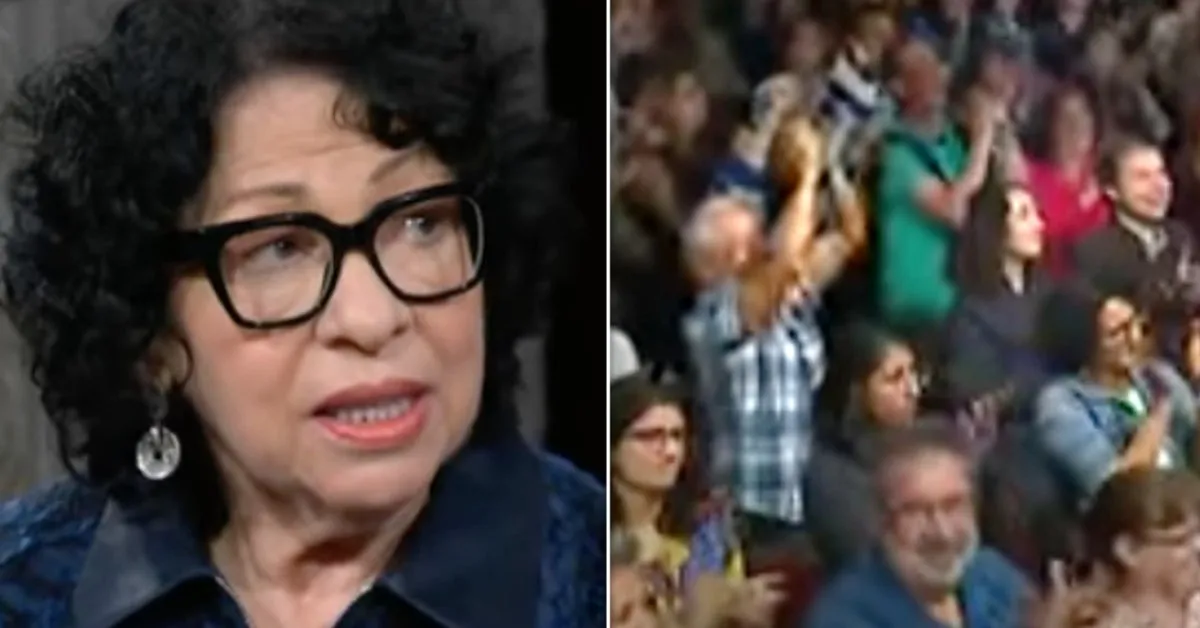
On Tuesday night, Supreme Court Justice Sonia Sotomayor delivered a powerful dissent that resonated deeply with the audience of “The Late Show with Stephen Colbert.” This moment marked a significant instance of public support for the justice’s views on critical issues surrounding immigration and racial profiling.
During her appearance, host Stephen Colbert highlighted a striking segment from Sotomayor's dissent regarding the conservative-majority court's recent ruling. The ruling permits immigration agents to engage in racial profiling, a practice that has sparked widespread controversy. Sotomayor passionately stated, “We should not have to live in a country where the government can seize anyone who looks Latino, speaks Spanish, and appears to work in a low-wage job. Rather than stand idly by while our Constitutional freedoms are lost, I dissent.” Her words ignited an enthusiastic response, with the audience erupting into cheers and even giving her a standing ovation.
As the applause rang out, Colbert humorously suggested that he would read the entirety of Sotomayor's dissent, jokingly threatening to cancel actor Eugene Levy, who was slated to appear later in the show. Yet, Sotomayor redirected the conversation toward the importance of understanding Supreme Court opinions. She emphasized, “Too many people hear what a Supreme Court decision is and they come to immediate conclusions based on what are only their personal feelings.”
Justice Sotomayor urged the audience to take the time to read Supreme Court opinions themselves. “You shouldn’t do that. You should read the opinions. You’re going to be shocked, not in this one, but in others,” she warned. Her statement highlighted the complexity of judicial decisions, noting that both the majority and dissenting opinions often contain compelling arguments. “You’re going to read the majority opinion and you’re going to step back and say, ‘You know, they’ve made some really good points.’ And then you read the dissent and you say, ‘They’ve made some really good points.’ And you realize that the questions are close.”
Justice Sonia Sotomayor's appearance on “The Late Show” serves as a reminder of the critical need for public engagement with the judiciary. By encouraging individuals to read and analyze Supreme Court decisions, Sotomayor is advocating for a more informed citizenry that can engage with the complexities of legal rulings. This approach not only fosters a deeper understanding of the law but also reinforces the significance of defending constitutional freedoms in an increasingly polarized society.